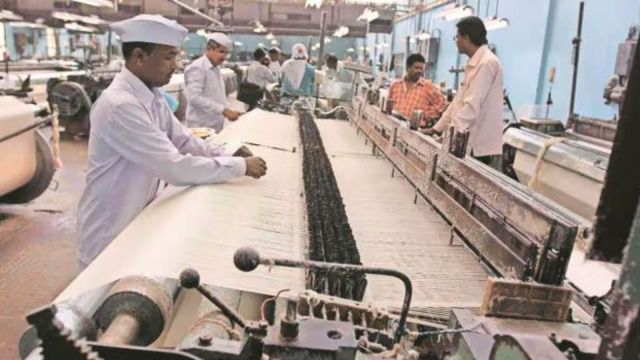IN JUST three years, the Bureau of Indian Standards (BIS) has issued as many as 84 Quality Control Orders (QCOs) based on the recommendations of various ministries and departments, which is almost 45% of all 187 QCOs administered by it. These 84 QCOs cover 343 products.
QCOs are legal orders issued by departments or ministries under the BIS Act, which make it mandatory for domestic and imported products, to conform with certain quality standards. The products cannot be sold unless they get a certification from the BIS.

But over the last two years, micro, small and medium enterprises have complained to the government that the QCOs are akin to non-tariff barriers, and have raised cost of inputs for them. In fact, NITI Aayog Vice Chairman Suman Bery recently said QCOs are “malign interventions” that have restricted imports of certain inputs, forcing MSMEs to procure these at a much higher cost for large companies.
According to government data, of the total187 QCOs notified till date, a majority i.e., 86 QCOs (covering 362 products) were issued issued on the recommendation of the Department of Department for Promotion of Industry and Internal Trade under the Ministry of Commerce and Industry, followed by 69 QCOs (covering 74 products) on the recommendation of the Department of Chemicals and Petrochemicals and 10 QCOs (covering 76 products) on the recommendation of the Ministry of Textiles.
Concerned over the large number such orders and complaints by a section of MSME associations, a high-level committee led by NITI Aayog member Rajiv Gauba (former Cabinet Secretary) discussed the issue in one of its meetings recently.
Year-wise QCO data shows that from just 10 QCOs in 2022-23, the numbers increased to 59 in 2023-24. In 2024-25, it dropped to 15, and in the current financial year till date, four QCOs have been notified. The QCOs issued over the last three years covered products like jute bags, water bottles, helmets, medical textiles, agro textiles, furniture, gas stoves, ceiling fan, primary lead, solar thermal system and stainless steel pipes and tubes.
The High-level Committee on Non-Financial Regulatory Reforms (HLC-NFRR), headed by Gauba held its second meeting on September 6.
Story continues below this ad
During the meeting, the committee deliberated on issues related to QCOs administered by the BIS and challenges faced by the industries and stakeholders in obtaining certifications under the QCOs, said a source.
Explaining the process of issuance of QCOs in India, an official said the concerned line ministry identifies products which require mandatory compliance to standards. It then holds consultation with all stakeholders including industry and the BIS and then prepares a draft QCO.
Before finalising the QCO, the draft is hosted at the World Trade Organization (WTO) Technical Barrier to Trade (TBT) website where other countries can comment.
Thereafter, the line ministry issues the QCOs giving usually 6 months or more time to implement them by the industry.
Story continues below this ad
The deliberations on QCOs also assume significance in the backdrop of India negotiating trade deals with the US and the European Union and navigating through the 50 per cent tariff penalty imposed by the Trump administration.
In India, BIS formulates Indian Standards for different products. While the BIS certification scheme is voluntary in nature, for a number of products, compliance to Indian Standards is made compulsory by the Central Government under various considerations viz. public interest, protection of human, animal or plant health, safety of environment, prevention of unfair trade practices and national security.
“For such products, the Central Government directs mandatory use of Standard Mark under a Licence or Certificate of Conformity (CoC) from BIS through issuance of QCOs,” as per the information available on the BIS website.
The Bureau of Indian Standards (BIS) Act, 2016, empowers the government to mandate standardisation through compulsory certification.
Story continues below this ad
The aim of QCOs is to uplift the national quality ecosystem and curb substandard cheap imports of goods in the country, said the sources.

































